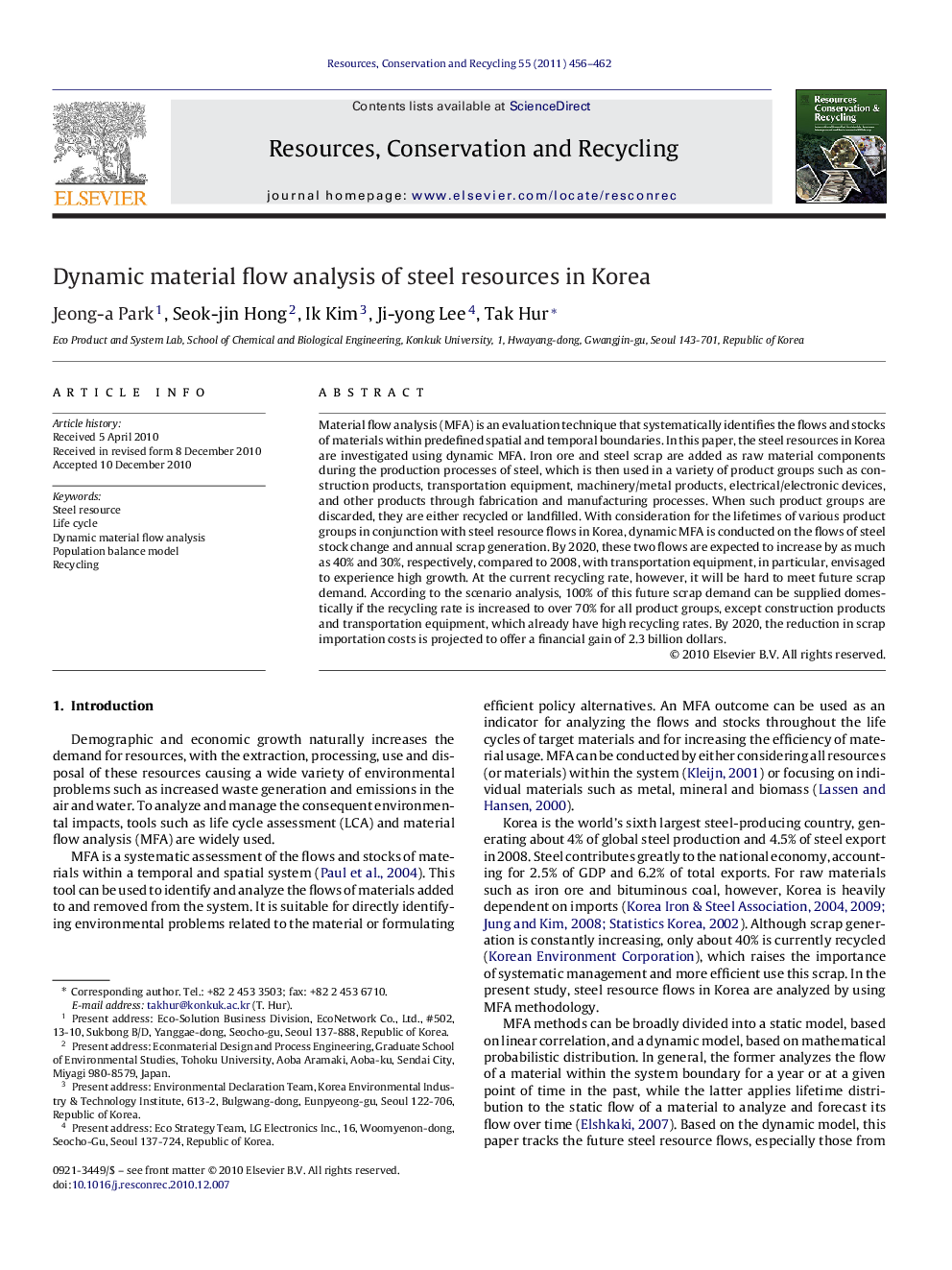| کد مقاله | کد نشریه | سال انتشار | مقاله انگلیسی | نسخه تمام متن |
|---|---|---|---|---|
| 1063559 | 948237 | 2011 | 7 صفحه PDF | دانلود رایگان |

Material flow analysis (MFA) is an evaluation technique that systematically identifies the flows and stocks of materials within predefined spatial and temporal boundaries. In this paper, the steel resources in Korea are investigated using dynamic MFA. Iron ore and steel scrap are added as raw material components during the production processes of steel, which is then used in a variety of product groups such as construction products, transportation equipment, machinery/metal products, electrical/electronic devices, and other products through fabrication and manufacturing processes. When such product groups are discarded, they are either recycled or landfilled. With consideration for the lifetimes of various product groups in conjunction with steel resource flows in Korea, dynamic MFA is conducted on the flows of steel stock change and annual scrap generation. By 2020, these two flows are expected to increase by as much as 40% and 30%, respectively, compared to 2008, with transportation equipment, in particular, envisaged to experience high growth. At the current recycling rate, however, it will be hard to meet future scrap demand. According to the scenario analysis, 100% of this future scrap demand can be supplied domestically if the recycling rate is increased to over 70% for all product groups, except construction products and transportation equipment, which already have high recycling rates. By 2020, the reduction in scrap importation costs is projected to offer a financial gain of 2.3 billion dollars.
Journal: Resources, Conservation and Recycling - Volume 55, Issue 4, February 2011, Pages 456–462